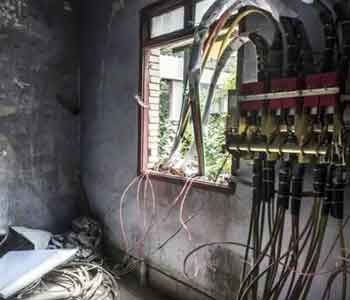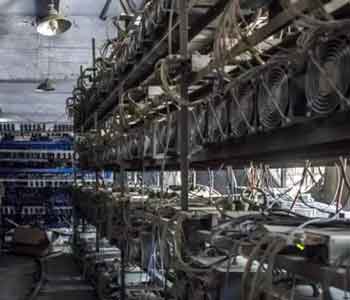Is Ripple’s XRP the Most “Green” Currency?
Source: xrpchat.com
Published: May 24, 2017
By Hodor
Cryptocurrencies’ proof of work consensus algorithms require the usage of massive amounts of electricity, for CPUs to mine for Bitcoins and other altcoins.
For Bitcoin, its coal-fueled mining facilities in China have become a subject of much attention and debate, as the miners’ interests are only about generating Bitcoins as a mining reward. They do not focus on other metrics, such as uptime and network stability, as for instance Ripple does.

Bitcoin mining operation in China
This approach is still considered a bit of a novelty, and requires a hybrid approach to start off the blockchain at its beginning stages — essentially hard-coding in a starting distribution of the stake to initiate the protocol.
The other consensus algorithm is one that has been proven stable over many years of use: the XRP consensus, which uses a byzantine consensus algorithm. It’s not considered a proof of work or a proof of state, but instead it is centered around a “voting” mechanism among trusted nodes on a network.
This means that no “mining” is necessary on the RCL (Ripple Consensus Ledger), and it is by far the most energy-efficient method of achieving transaction confirmations, even more so than a hybrid proof of stake.

Bitcoin mining operation in China
According to VICE Motherboard, in June 2015 one Bitcoin transaction required the same amount of electricity as powering 1.57 American households for one day, of which the average-sized home is approximately 250 square meters.
In June 2015, the Bitcoin network was consuming enough energy to power 173,000 American homes. Imagine the network’s amount of energy consumption today with the dramatic increase of Bitcoin use and value.
Early this year, Bitcoin’s energy consumption has passed that of Paraguay and is now close to Uruguay’s.
It’s a massive increase in electricity use. That’s not sustainable.
I have seen no such estimate yet of Ethereum, but because it’s a proof of work blockchain, it will require or imply electrical consumption to fuel its consensus algorithm, and to keep its network secure (source: reddit).
The general public has shown a tendency to opt for “green energy” solutions in almost every industry where they know about the choice, or it’s clearly labeled.
In the case of cryptocurrencies, Ripple has chosen not to trumpet the “green-ness” of their XRP token, instead they’re focusing on their incredible efficiency.
For me it’s good to know that the environment is benefiting from my choice of investment as well.
Stay green! Buy XRP!
(republished with kind permission of Hodor)